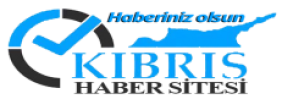E-COMMERCE
Some elements of the industrial economy
The purpose of this article is to present some of the industrial economics courses for the Internet. We mainly deal with business activities that use the Net as a tool. Therefore, the presentation focuses on e-commerce.
We will also examine only purely electronic activities involving information goods markets and online mediation.
We will cover some of the features of these activities, the relevant areas of economic theory, the insights they provide, and aspects of research that will be developed to better understand the industry.
We have divided this topic into three parts:
• The first chapter focuses on the problems posed by the commercial exploitation of information goods due to the nature of the product.
• The second part deals with networkeffects and more specifically the significantly growing online brokerage sector.
• In the last section, the role of advertising is briefly discussed.
Agents create value by bringing together various types of stakeholders: sellers, buyers, advertisers, potential customers. Its activities are characterized by “indirect” networkeffects that create problems of sharing the value produced.
 Here we will not deal with the problem of the transition to the online sale of non-electronic goods.
Here we will not deal with the problem of the transition to the online sale of non-electronic goods.
The use of the Internet as a new distribution channel may be part of a logic to conquer new markets or a defensive logic to protect gains made by traditional distributors.
It requires careful negotiation of the switch to the network to protect traditional distribution channels (channel conflicts) as well as avoid threatening offline sales.
These aspects are discussed, some related to the abundant literature on the adoption of new technologies and some related to the literature on vertical chains.
However, it should be noted that the difference between brokerage and online selling is sometimes difficult. Because brokerage includes various aspects, including the management of information flows and distribution of products. Some sites only focus on information flows.
ELECTRONIC INFORMATION ASSETS
Most of the goods and services exchanged on the Internet come down to information or processing of information provided by sites to their customers. In practice, the concept of information goods is rather vague. Because it usually covers the information sold (news, advice, music, text, stock prices, addresses, etc.) and the physical support of this information.
Our aim here is to focus on the informational nature of the product. For the avoidance of any ambiguity, here we mean any good or service offered and consumed electronically on the internet by information goods.
When we talk about the information goods trade, two facts immediately come to mind.
• The first is the emergence of portals (AOL, Yahoo, Wanadoo, MSN, etc.), gateways to information dispersed on the Web.
• Second, most information services are free.
 Portals affect the spectrum of services, typically starting with a centralized activity providing access or a search engine.
Portals affect the spectrum of services, typically starting with a centralized activity providing access or a search engine.
They are sites that extend a wide spectrum, including services that seem particularly unrelated to each other.
The event also seems very busy, with a few portals pulling the majority of traffic in the United States.
e-commerce examples
e-commerce wikipedia
types of e-commerce
e-commerce pdf
e commerce industry
e commerce benefits
e commerce introduction
e commerce full form
AOL, Yahoo and MSN accounted for 80% of public portals traffic in 2000. While there are certainly economies of scope in managing subscriber accounts, the reasons for this evolution are unclear.
In particular, portals coexist with special sites. Technology makes it possible to navigate between sites for free.
Thus, the technical possibilities allow both an organization dominated by portals and a service organization in a network of specialized sites. Since the phenomenon is not related to technology, it must be based on the nature of the goods exchanged.
The fact that some services are free can be seen as either a temporary phenomenon or a long-term phenomenon. The temporary availability of some goods at prices below cost is not new and refers to the concept of loss-making prices.

A firm will be willing to sell an item at a loss if it allows it to build up a customer base that will then generate profits that compensate for current losses.
In fact, this is the argument put forward by commercial sites in general to justify common business losses.
On the other hand, free access as a long-term phenomenon is related to the nature of the activities of sites on the Internet. It is a more specific phenomenon that depends particularly on the form of network effects, and also on the nature of the activities of sites on the Internet.
These two examples of certain features of portals and free access show that trading activities in information goods have certain characteristics that can only be reduced to the type of products sold.
Informative goods such as news, stock quotes, product features, advice, software and other intangible services have a much higher cost of production than the cost of reproduction and dissemination.
Within the framework of perfect competition, the investment made in knowledge production cannot be recovered. Because the price of knowledge will fall to the marginal cost of diffusion, which is almost zero.
As a result, knowledge, with all the problems it poses in the exchange economy, becomes an excluded public good.
Dr.Yasam Ayavefe














